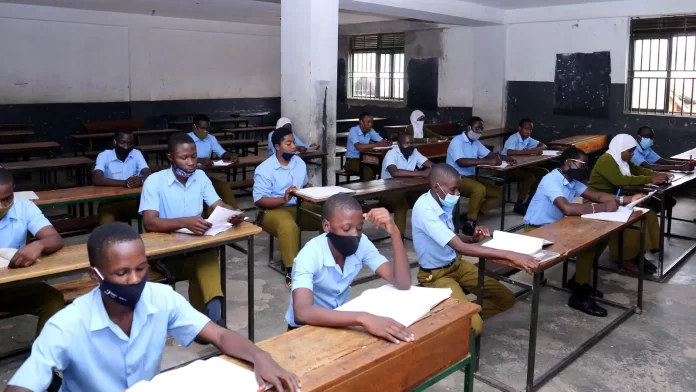As schools officially open on Monday, February 5, 2024, for the first term of the academic year 2024, a term which will run until May 3, 2024 (89 days), the exorbitant school fees structure in Uganda has come with significant implications for peasants and low-income earners in the country. This has affected their ability to access quality education, setting up barriers to social and economic mobility.
High school fees serve as a barrier that limits children from low-income households from accessing formal education. Families living in poverty definitely struggle to afford tuition fees, leading to a decline in school enrollment among children from disadvantaged backgrounds.
Fortunate Atuhaire, a former pupil of Kyabuharambo Primary School located in Masheruka village in Sheema district who recently scored aggregate 4 in the 2023 Primary Leaving Examinations (PLE), had no hope of continuing with secondary education since her family could not afford to further her education. However, after appearing in the media and asking for assistance, Maryhill High School in Mbarara city offered her a scholarship. This is one of the many pupils who would have dropped out of school, hence the decline in school enrollment.

Limited access to education due to exaggerated school fees perpetuates the cycle of poverty. Without educational opportunities, children from low-income families face restricted career prospects and reduced earning potential, which contributes to the persistence of poverty within their communities.
Education is a crucial pathway for social mobility. However, inflated school fees that are unaffordable to low-income families hinder the prospects of upward mobility for children, thus limiting their ability to break out of poverty and improve their conditions.
The inability of low-income families to afford high school fees further widens the gap between the rich and the poor. It creates an unequal playing field where children from affluent backgrounds have greater access to educational opportunities, thereby reinforcing socio-economic disparities.
It’s crucial to note that access to education is vital for the development of human capital within the country. When high school fees create barriers to educational attainment, it stifles the potential for a skilled workforce, innovation, and national development and eventually strains the country’s long-term economic growth.
Consequently, without access to quality education, individuals from low-income households face increased vulnerability to social, economic, and health-related challenges, limiting their ability to contribute meaningfully to society and improve their overall well-being.
Addressing the implications of hiked tuition fees for peasants and low-income earners in Uganda requires concerted efforts to ensure equitable access to quality education, including interventions such as targeted financial assistance, scholarship programmes, and policies aimed at making education more affordable and accessible to those from disadvantaged backgrounds.















